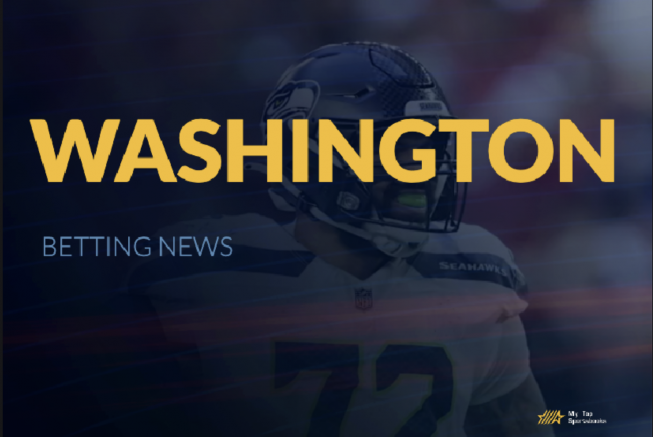
It’s not exactly easy to get into Washington sports betting right now— we’re talking the state, not the nation’s capital. Unlike most of the country, Washington still requires legal sports bets to be made in person at tribal-run retail sportsbooks. Not popular sports betting apps. Just gas money, a drive, and a physical counter.
But… as Seahawks football is only weeks away, bettors in the state might have a better option this football season. An option they can legally do and from the comfort of their home. We’re talking about prediction markets!
Prediction markets let users buy and sell shares of real-world outcomes — sports, politics, economy, and a host of other things. Technically, they aren’t classified the same way as sportsbooks, which means they can often operate in states where sports betting is outright banned or heavily restricted as it is in Washington. Allow us to explain this new trend.
Kalshi Is Leading the Charge
Kalshi has quickly become the face of the modern prediction market boom. The company was founded in 2018 and originally focused on political and economic questions. But early this year, Kalshi dove into sports, and that’s when everything took off.
In just a few months, NBA contracts became Kalshi’s bread and butter. Of the platform’s 51 most-traded contracts ever, 50 are NBA-related. The 2025 NBA Finals alone saw over $130 million in volume, with Game 7 accounting for more than 90 percent of the day’s activity on Kalshi.
Capitalizing on this momentum, Kalshi just raised a massive $185 million in a funding round that values the company at $2 billion. Kalshi’s CEO Tarek Mansour says the pivot toward sports betting is what’s driving the company’s growth, which means one thing: they’re going to double down on it come football season.
But Kalshi’s rise hasn’t come without legal challenges. Seven states — including Nevada, New Jersey, and Maryland — have issued cease-and-desist orders, accusing Kalshi of offering unlicensed sports betting. Kalshi’s rebuttal is that it’s federally regulated by the Commodity Futures Trading Commission (CFTC), not state gambling boards. So far, it’s won temporary court victories that let it keep operating.
The state of Washington hasn’t weighed in yet, but if the feds don’t step in, Kalshi has a wide-open market here, where traditional sports betting is still frustratingly out of reach.
More Momentum In Prediction Market Space
Kalshi may be the most visible player in the prediction market space, but it’s far from the only one picking up steam. Other major players are circling — including both crypto-native platforms and traditional sportsbook giants trying to sneak in through the side door.
Polymarket, Kalshi’s top rival, is reportedly raising $200 million in a round that would value it at over $1 billion. Led by Peter Thiel’s Founders Fund, Polymarket uses crypto and blockchain to run its business. While Polymarket doesn’t currently serve U.S. customers due to a 2022 settlement with the CFTC, the momentum around its growth — and its recent partnership with X (formerly Twitter) — has many wondering if a return is inevitable. Especially with a more crypto-friendly administration in place, some see Polymarket as one court decision away from a national breakout.
Meanwhile, DraftKings — the number two sportsbook in America — is also maneuvering into the prediction space. After pulling its own application to launch a federally regulated platform called DraftKings Predict, the company is now rumored to be acquiring Railbird, a CFTC-approved event market startup founded by two former Point72 analysts.
Railbird isn’t live yet, but it already has federal approval to operate nationwide, which means no need for individual state licenses. If DraftKings closes the deal, it would instantly give them access to all 50 states, including locked-down markets like Washington (DK has a physical sportsbook, but no online presence). This move would be a backdoor entrance for DraftKings, bypassing Washington’s strict sports betting laws and offering a product that looks and feels like betting — just under a different legal definition.
Washington’s Betting Restrictions Are Still Stuck in the Past

The state was actually quite early to legal sports betting. It legalized it in 2020, only two years after the landmark Supreme Court ruling. However, the in-person-only restrictions on it have put a lid on the industry. That’s left most bettors either driving long distances, betting offshore, or ignoring the market altogether. Efforts to legalize statewide mobile betting have failed to gain traction in the legislature, largely due to resistance from tribal gaming interests that want to protect their exclusivity.
And remember, Washington is known for its diehard sports fans. Not just the 12th man with the Seahawks, but this is a state that’s also big into its soccer teams and the Mariners too. So if betting were more available, this could be a sneaky-strong market. Platforms like Kalshi and Railbird (once it’s fully live, with or without DraftKings) could fill the gap that exists in Washington.
For the average Washington bettor, it means relief may finally be on the way — not through a big vote or legislative breakthrough, but through a technical loophole that’s opening doors far faster than lawmakers ever could.
 Best Betting Sites
Best Betting Sites 